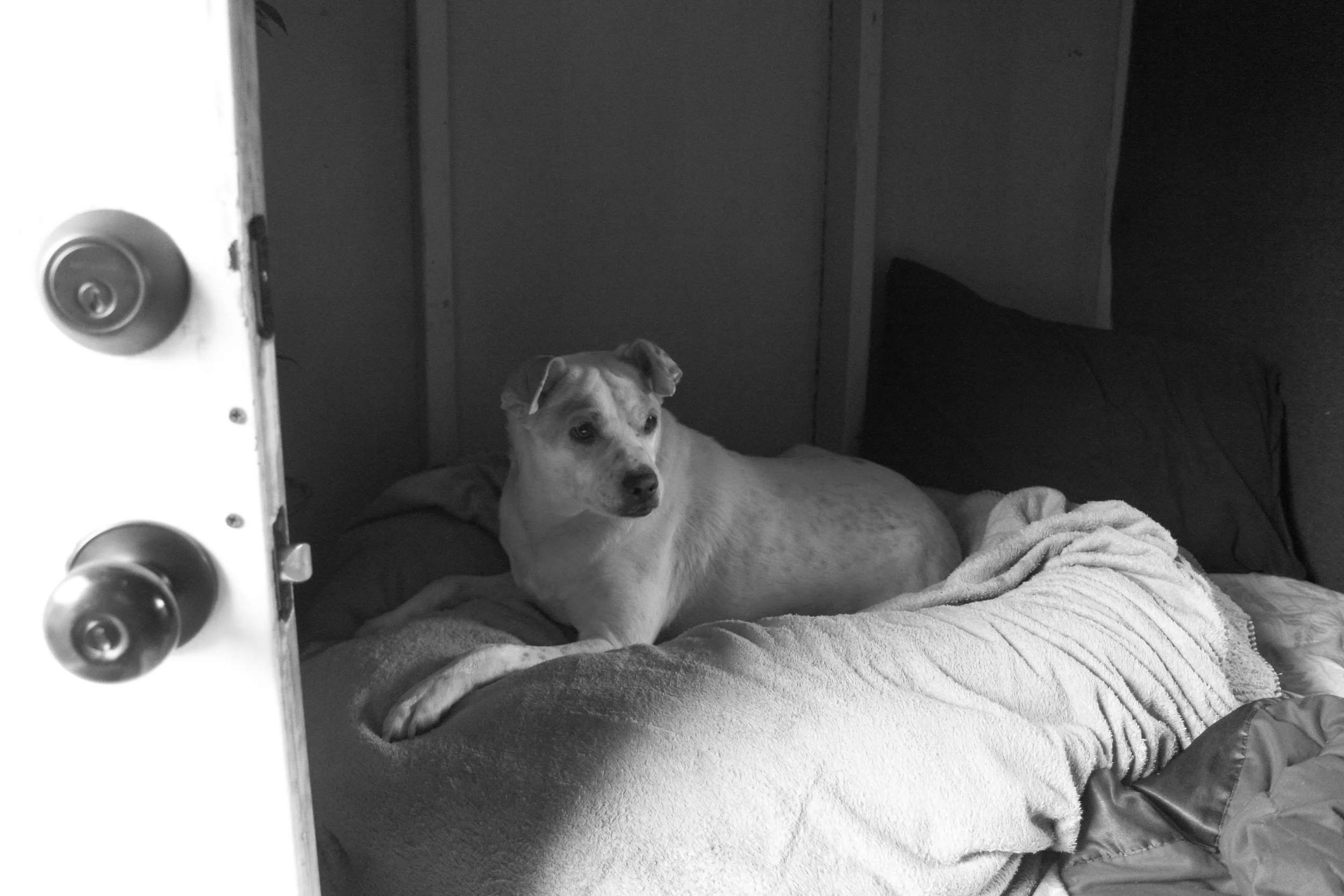"They’ll never know until they become homeless and have an animal. I used to believe the stereotype until I became homeless. It’s hard to change the way you see things… In my mind I went with the stereotype, I didn’t really know anyone homeless…It’s hard to know unless you’re actually in it. I’m a firm believer that a lot of people who are homeless should have animals. He’s helping me out."
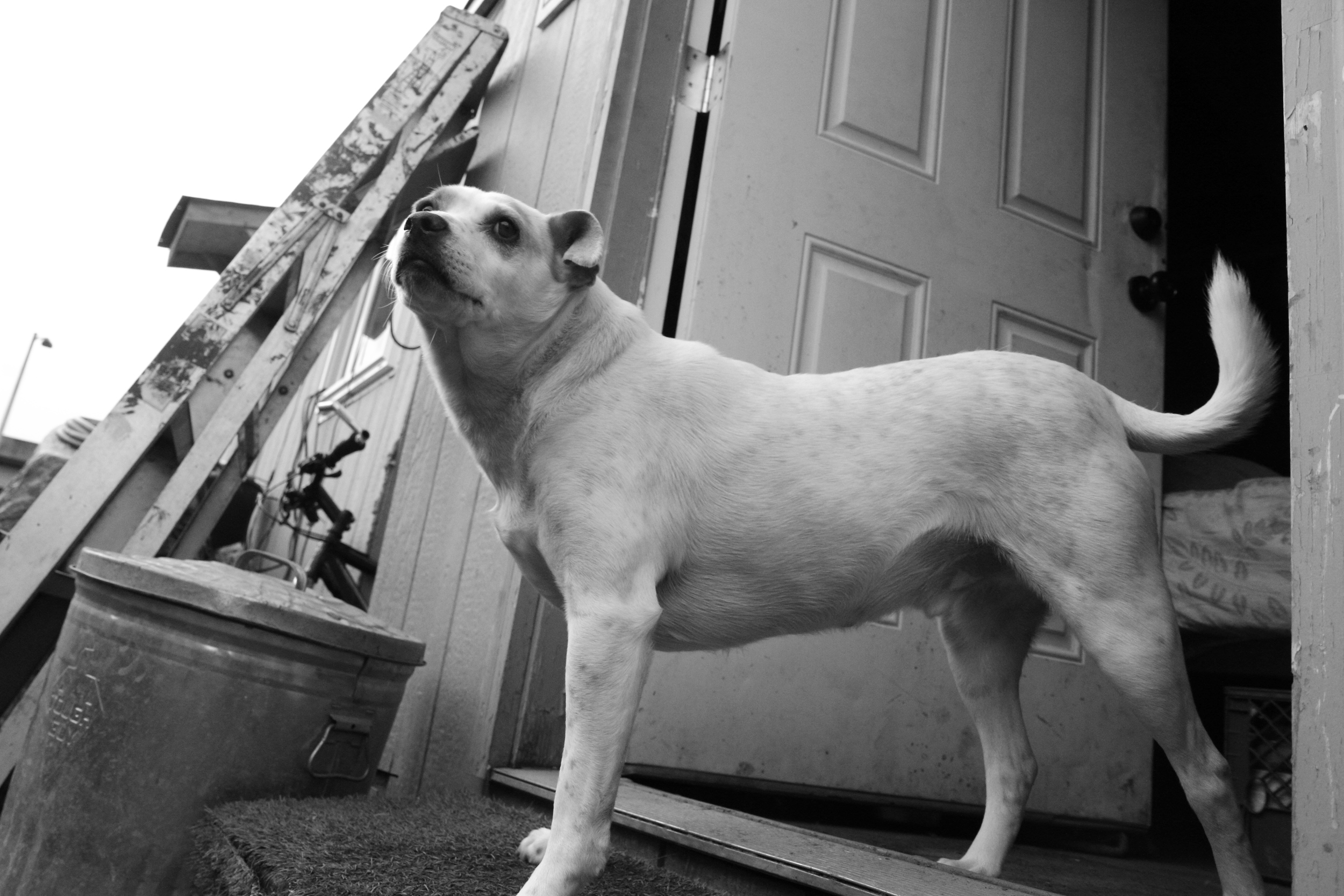
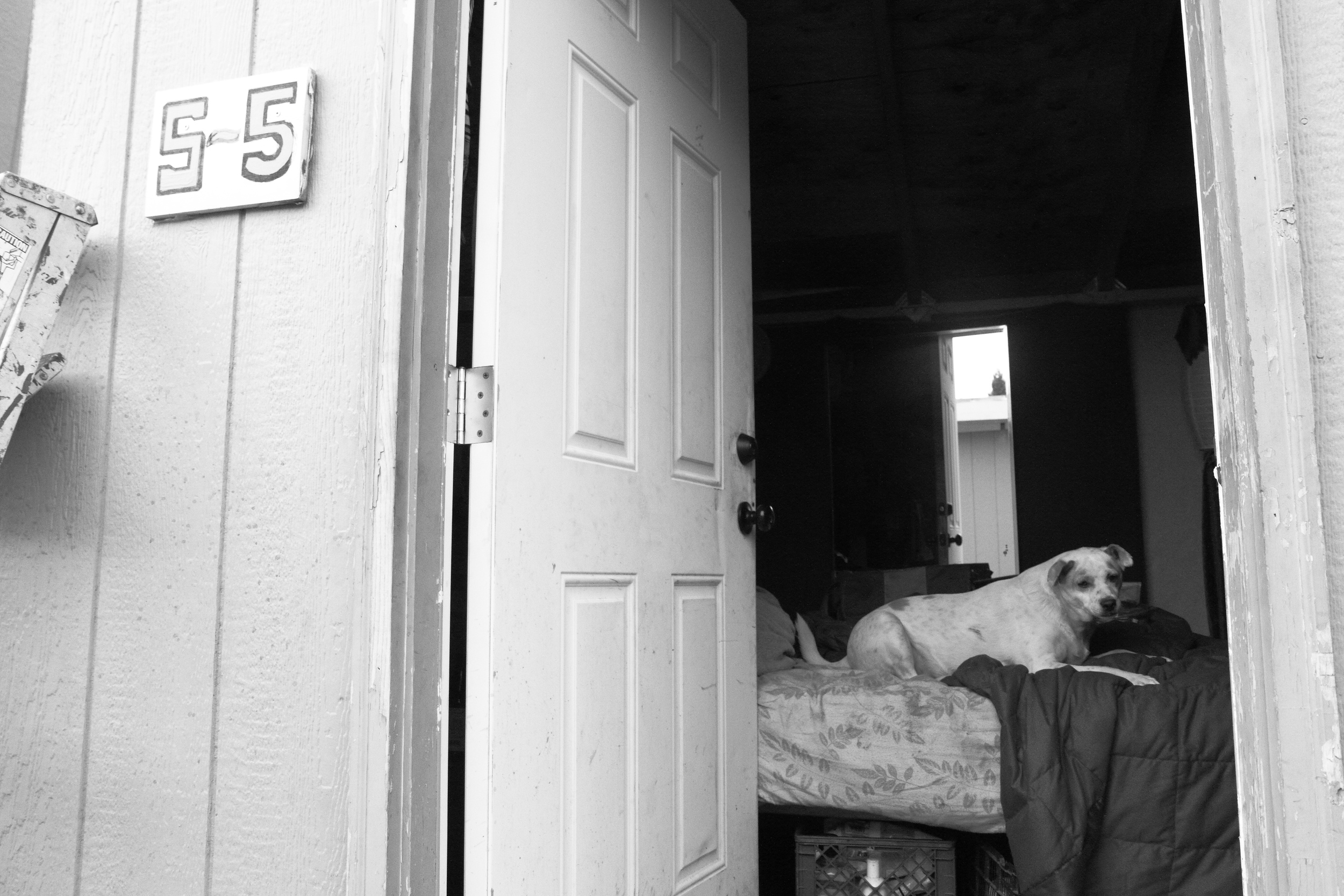
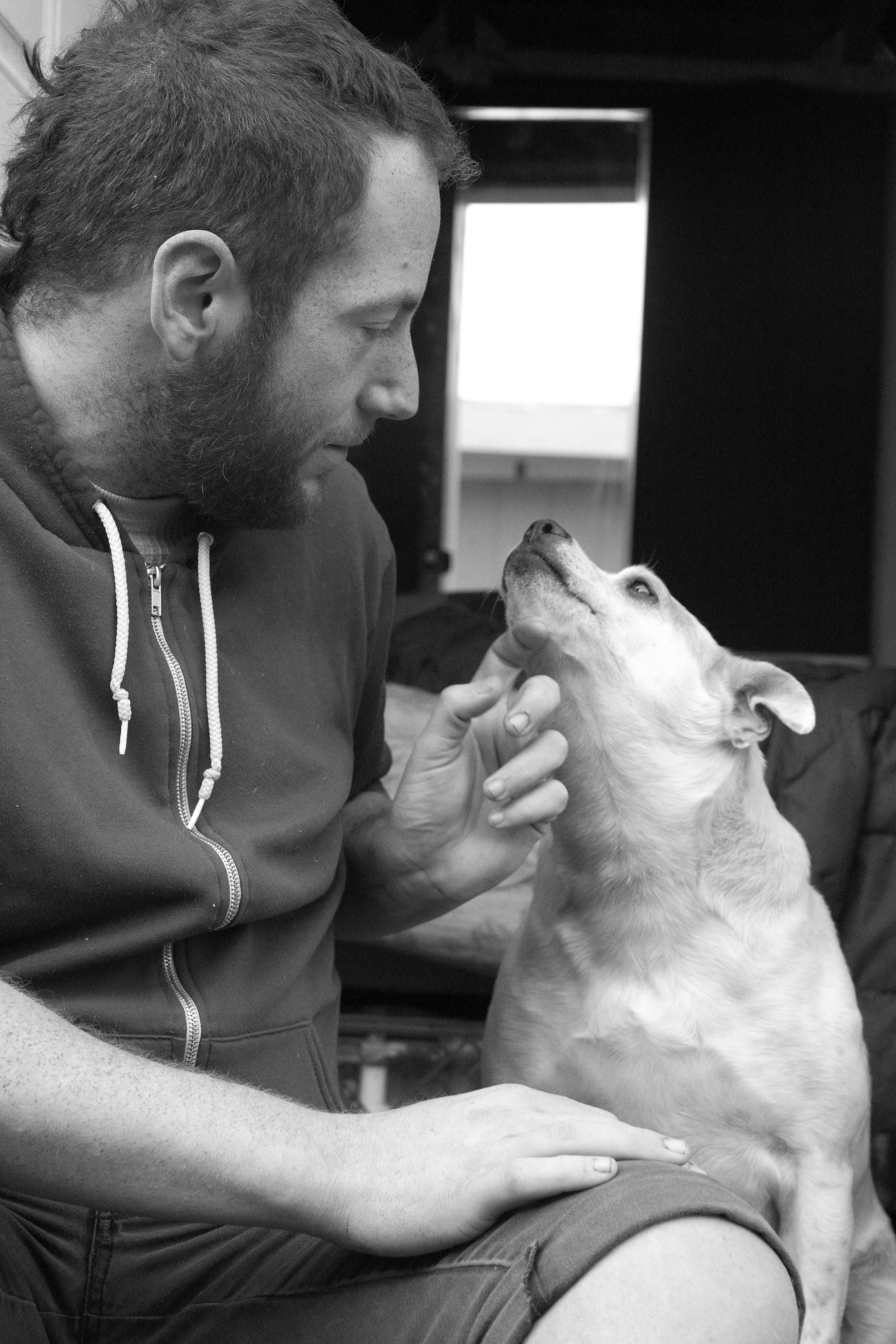
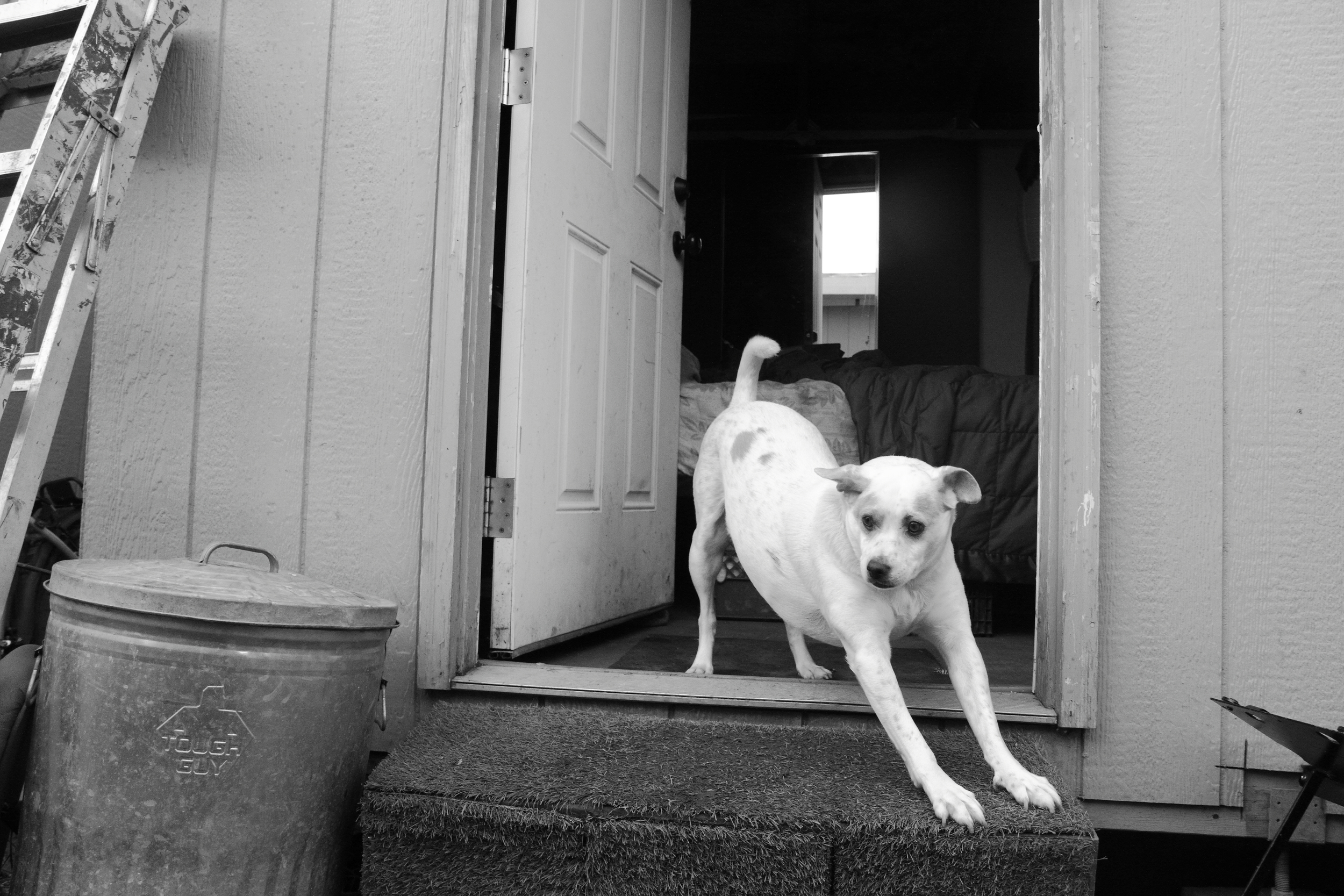
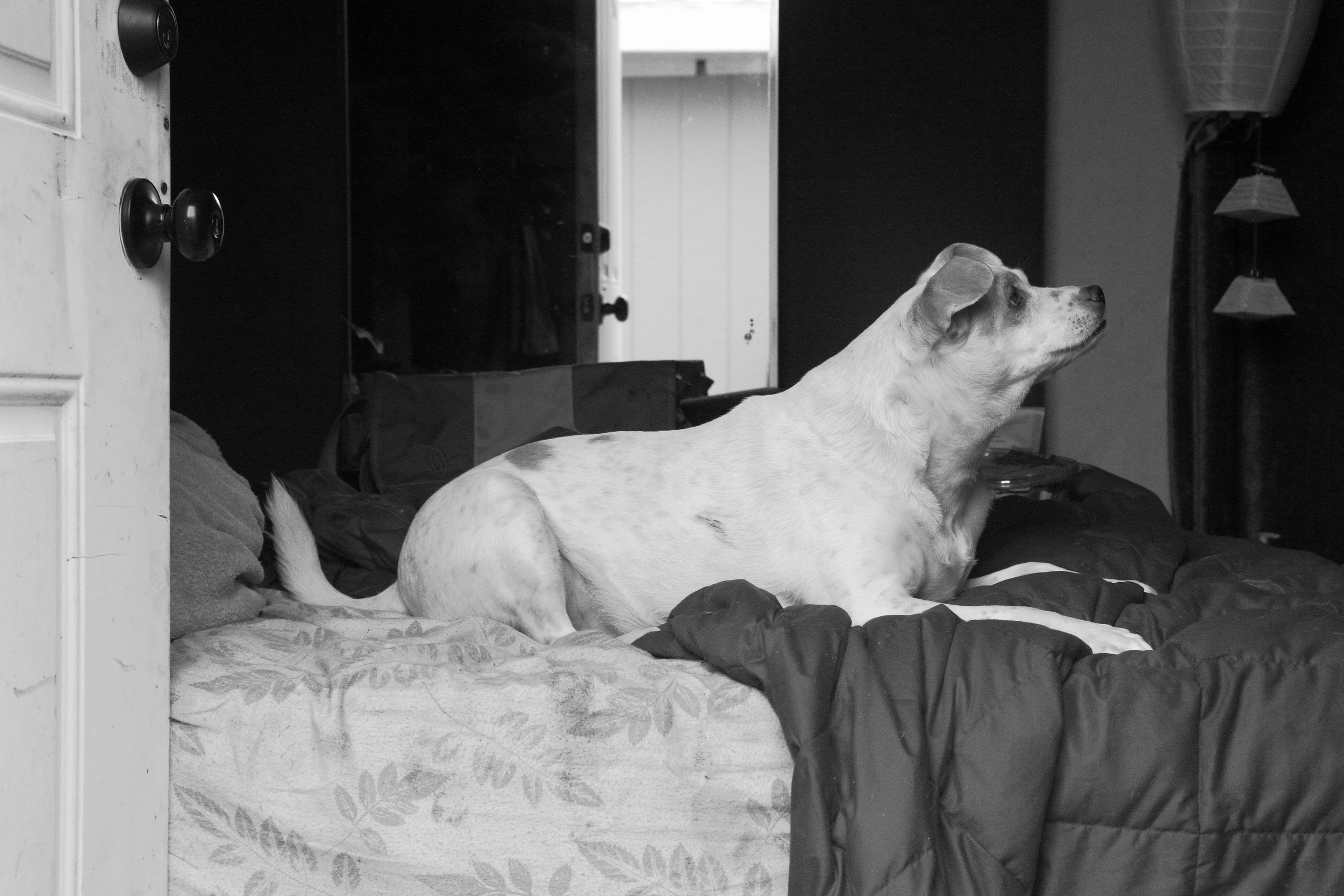
I was introduced to Michael on my third visit to Nickelsville, and when I knocked on his door he and Buddy were just rising from an afternoon nap. Michael moved to greet me while Buddy stayed put on the pillows, comfy as could be. Buddy, now seven years old, came into Michael's life when he was just three. They were both in Tent City 3 at the time but Buddy belonged to someone else - Michael knows that he rescued Buddy from a bad situation. When they left Tent City 3 Michael ended up on the streets for the first time. He spent three weeks camping in Shoreline in between leaving Tent City 3 and arriving at Nickelsville, where he has stayed since. "That was hell," he somberly recalls. After three weeks on the streets he was arrested and Buddy was taken to PAWS. He was able to find the money to get Buddy back and, with their reconnection, his behavior started to change - "He’s helping me be better. I don’t do anything stupid or reckless. Stealing liquor, drinking, drugs, after I got him they all got better. I kept thinking about that day that they took him away from me."
Michael struggles with anxiety issues, and he found that when he first got Buddy his anxiety actually increased because people were always coming up to him to try and pet Buddy. Now, he says his anxiety is worse without Buddy. It was his therapist that "helped change his mental paradigm" about his situation with Buddy, supporting him to see how they were helping each other. "I’m overly attached now," he says, "At first I thought, 'This is a rough situation on me, I can’t imagine how it is for an animal.' In my mind I was making it a bigger problem than it was. I’m going to have this dog all the way through. As long as he’s happy now that’s what matters... He helps me with my anxiety and being alone. He’s comforting. It sucks to go up to your tent and be alone."
Two years ago Michael's physician wrote him a letter stating that Buddy was an emotional support animal, considered the same as a service animal in King County, which has helped with some of the mental health issues Michael faces. While Michael acknowledges the very real benefit he has gained from this, he worries about others taking advantage of the same thing that has helped him so much. Every evening Michael bikes to a nearby park with Buddy by his side, and he can now take Buddy to his doctor's appointments with him, but he won't use Buddy's status as a service animal to have him along at places like restaurants, grocery stores, or movie theaters - "If people abuse it, that sucks. People who take advantage of service animals make it harder for those of us who really need emotional support dogs," he exclaims.
“Some people want dogs for the wrong reason. I don’t like when people get dogs just to get a dog. It’s very much a living thing that depends on a person. They 100% depend on you. When you’re in this situation it’s all the time.”
One of the more unique ways that Buddy has helped Michael is through offering an outlet for connecting on social media with other members of the homeless community. Michael estimates that he has been homeless for five years now and feels that Facebook is a very personal space for him, a place that he can vent and needs to vent about his experiences. As a result, he doesn't tend to connect on this platform with friends he has made while homeless - instead, he made Buddy a Facebook profile that he uses as a means to connect with friends he has made throughout his experience with homelessness. To date, Buddy has about three times as many Facebook friends as Michael does. One of these friends in particular is Michael's mother. Michael comes from a family of Jehovah's Witnesses and is no longer in the church, but although he and his mother are not Facebook friends, Buddy's profile has allowed a route for he and his mother to reconnect - "She'll write things [on his wall] like "We'll probably never meet you but I'm your grandma!"
Although finding food for Buddy has not been an issue, Michael does worry about his ability to afford veterinary care. Although he knows about the Doney Clinic he has not yet visited, and he's found that when he takes Buddy to a private clinic that he is guilt tripped for his situation and told that he doesn't qualify for a payment plan. Still, he does everything he feels able to do in order to take care of Buddy - "He’s a 24hr dog, he needs lots of care. He can’t even make it through night without going out to pee!" He mentions that, just like a person, Buddy also has his ups and downs depending on the day. He looks over at Buddy and says "today is a down day, maybe he had too many treats last night?" Looking around his room at all the bags of dog treats, it's certainly a possible conclusion.
